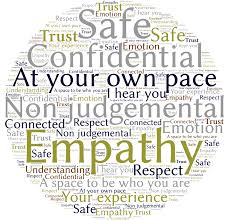21 Reasons why Alternate Healing is a must for Cancer Healing
21 Reasons why Alternate Healing is a must for Cancer Healing is written by me because I have fought cancer. I know the pain, the humiliation, the side effects, financial depletion and mental trauma a person goes through when cancer is treated through traditional methods. That is why I am listing 21 Reasons why Alternate Healing is a must for Cancer Healing, there will be more.
21 Reasons why Alternate Healing is a must for Cancer Healing are:
- No side effects
- No unnecessary chemicals in your body
- You feel energetic and lively
- During the treatment you never feel degraded
- There is no pain
- There is less emotional upheaval
- There is no unpleasantness
- There is no discomfort
- There is no nausea
- There is hardly any fatigue
- There is no anxiety
- There is no mood disturbance
- There is no vomiting
- There is no embarrassment of loosing hair
- Sleep disturbance are minimal
- Mucositis is absent
- There is no itching ‘
- There is no scarring of skin and tissues
- Hot flushes are avoided totally
- One can avoid depression
- Above all it is cost effective
I have already discussed Alternate healing methods for Depression in a previous blog. Those methods could be used to treat depression during the treatment of cancer.
Let me give some abstracts from articles and scientific papers telling about the Reasons why Alternate Healing is a must for Cancer Healing.
The First one is a scientific paper
http://theoncologist.alphamedpress.org/content/1/3/173.full.html
Mainstream Medicine Opens its Arms to Alternatives
Alternative medicine has made unprecedented inroads in mainstream medicine, including medical schools, academic medical research centers, peer-reviewed medical literature, insurance companies, managed care and the federal government. Many institutions here and in other countries now have alternative medicine research centers.
More than two dozen medical schools and hospitals have programs or departments for the study of alternative therapies. CME credits are available to health professionals who participate in alternative medicine conferences.
The Growing Popularity of Alternative Cancer Medicine
Alternative medicine is extremely popular with the public, with better educated people using it more often than others.
The limited number of investigations conducted in the United States found that substantial proportions of cancer patients use alternative or complementary therapies.
Why Patients Turn to Alternative Cancer Therapies
Chemotherapy’s side effects have become increasingly intolerable to a public focused on “natural” products and wanting more gentle and more effective substitutes for mainstream cancer treatments. Some complementary therapies which can help ease the negative side-effects of mainstream cancer treatment.
Good communication between oncologist and patient, plus appropriate use of complementary therapies, should reduce patients’ frustration and dissatisfaction with oncology medicine, help counteract the perception that only alternative practitioners care about their patients as people, and encourage patients to continue conventional care.
Managed care leaders and alternative medicine proponents call for complementary therapies, and, in some cases, for alternatives as cost efficient and responsive to patients’ needs. Optimally, a clinically responsible balance can be forged between the science and technology of cancer medicine and the comfort that the best of complementary medicine can bring.
The second one is by a cancer survivor:
“If you can’t tell, I’m an advocate for doing everything possible to heal naturally but I understand there are those who don’t hold to the same conviction as I. Whatever your decision, don’t make it lightly. Do your research. Talk to your doctor. Fight hard! We all want to live as long as possible.”
Says – Bonnie Annis is a breast cancer survivor, diagnosed in 2014 with stage 2b invasive ductal carcinoma with metastasis to the lymph nodes. She is an avid photographer, freelance writer/blogger, wife, mother and grandmother.
You could also go through: Benefits of complementary therapies
https://www.ncbi.nlm.nih.gov/pmc/articles/PMC2230517/
Now let me tell you why I advocate Alternate Healing is a must for Cancer Healing.
5 years ago I was diagnosed with Cancer of the uterus – Carcinoma of the endometrium. I was told it was a rare form.
I had a surgery to remove my uterus as there was a growth which could not be explained by CT or MRI and biopsy said it was INFECTION, plus I was bleeding after my menopause. I had been put on antibiotics for 2 months and there was no effect. I tried alternate therapies to cure the INFECTION and every treatment I started had effect initially and then it was back to square one. So finally I decided to get my uterus removed as suggested by the Gynecologist. The uterus was sent for testing after removal and we were waiting for the results.
On the day the results came my sister got it but told me she has yet to fetch it .Finally after 2 days I remember my sister, my brother-in-law , nephew and niece walking in to my home ( 3 of them doctors except my niece) all dispersing false cheer which was very palpable.
After talking this and that my sister told me that today there was cure for cancer and it can be treated and I should not worry! It was like a death knell. I kept a smile on and said it was ok but it was not. I could not break down in front of my aged mother whom I am talking care of. We both depend on each other and I am the earning member.
Then started the rounds to meet oncologists and some said chemotherapy and radiation was required and some said radiation and hormone therapy was required. I was also on the net searching for some alternate therapies. I am myself a Registered Alternate Medicine Practitioner. I called and asked my friends their suggestions.
Most Doctors were astounded as to how my cancer had progressed to just end of 2nd stage in 1 year. They were sure it should have reached further. I told them of my alternate medicine treatment. Only my sister believed me but was not willing to let me try alternate medicine alone.
I called and got an appointment to meet my Guru, my Teacher of NLP and Gestalt therapies- Dr. Richard (Dick) McHugh S.J., PhD and went and met him in Bangalore. He was luckily ( he came to India once a year) teaching what he loved most NLP – looking within oneself for answers and integrating all life’s experiences and accepting oneself completely.
Dick listened to me patiently and told me to remove all stress from my life, leave all red meat, milk and milk products, have lots of fruits and vegetables, do meditation, vipassana and do affirmations. He told me the choice of treatment was mine and I had to take the decision. Just his presence brought calmness and I was ready to take my decision.
I decided to go the alternate medicine route, however, my sister had by then brainwashed my mother and I was pressurized to go in for the traditional medicine.
Finally I was to go in for Radiation and hormone therapy and of course I decided to follow Dick and take Bach Remedies. I called my teacher of Bach Remedies who conducts one of the Best 10 Alternate Medicine Courses conducted in Chennai and he agreed with the remedies I had decided.
I discussed with the oncologist about the side effects of radiation. He assured me there would be nil. I pointed out the search on the internet and he told me not to believe all that. I must say the oncologist took me to be a fool and kept on feeding me falsehoods throughout my treatment. He never accepted that the problems I was facing were due to radiation. Like severe bleeding after brachy therapy was due to radiation.
During the course, I developed severe loose motions around 30 per day! And he told me it was not due to radiation! So my sister put me on antibiotics and still no effect and after 4 days he just said it was due to hyper peristaltic movement of my intestines!
I immediately started on my affirmations and within a day brought it down to 5/day. The oncologist never believed it and kept asking me every day and I gave the same reply that it was under control. He then got a technician to ask me what I was chanting! I went in to his office and told him I was chanting –”I am safe. All pressure dissolves. I AM good enough”
After my treatment was over I went back for a review. He once again refused to acknowledge that my sudden problem with difficulty in passing urine was due to constriction of the urethra due to radiation. I had to get my urethra dialated once a month and again alternate medicines and affirmations have helped to make it once in 3 months.
I developed severe hot flushes so much so I had to change my night clothes and bed sheets twice in the night – gift of harmone therapy. I cannot sleep without air conditioner and so my electricity bill goes up – Reasons why Alternate Healing is a must for Cancer Healing !
Suddenly after 6 months, I was unable to walk due to crippling pain in my feet and legs and found I had varicose veins. Well lots of other side effects which only a cancer survivor will understand. Others cannot imagine the frustration, the dejection one has to pull oneself out of everyday after radiation, chemotherapy , hormone therapy or the other treatments of Allopathy Medicine.
I finally found another oncologist and she agreed that all was due to radiation and hormone Therapy. She listened to me and treated me like a human being. I was able to face everything because of NLP therapies, Affirmations, Bach Remedies and light yoga.
The side effects exist even today. My Bach Remedies, Affirmations and Therapies keep me going. Of course there was a lot of emotional support from family and friends and a strict cooling diet of fruits and steamed vegetables and no milk and milk products.
I am not advocating that one needs to disregard the traditional treatment. It is each ones choice as to which line of treatment they want to take. However, I strongly advocate Alternate therapies after a proper study and research, talking to your doctor and an expert, reading books and then map your course of action.
Thus I will conclude by saying that Alternate Healing is a must for Cancer Healing.



